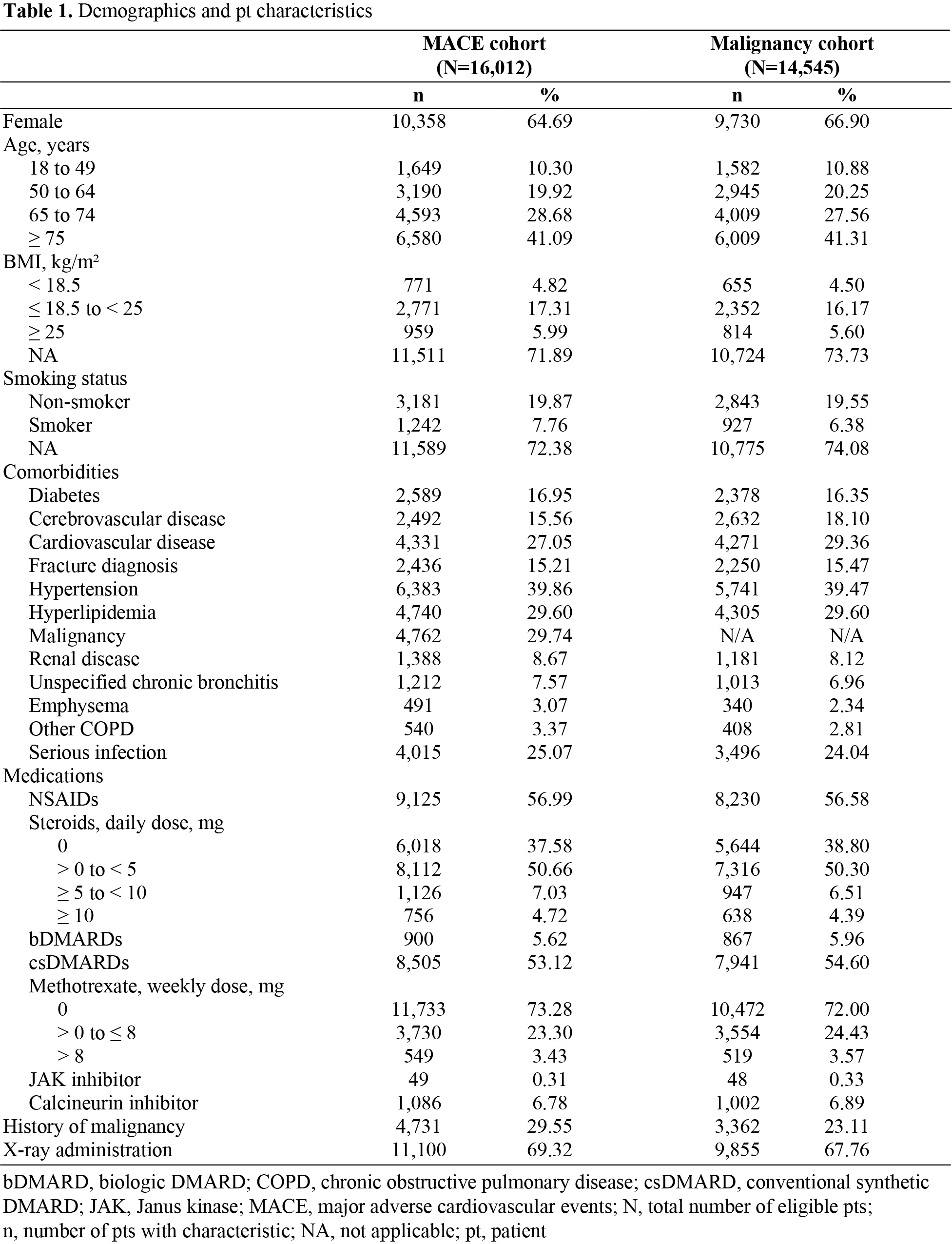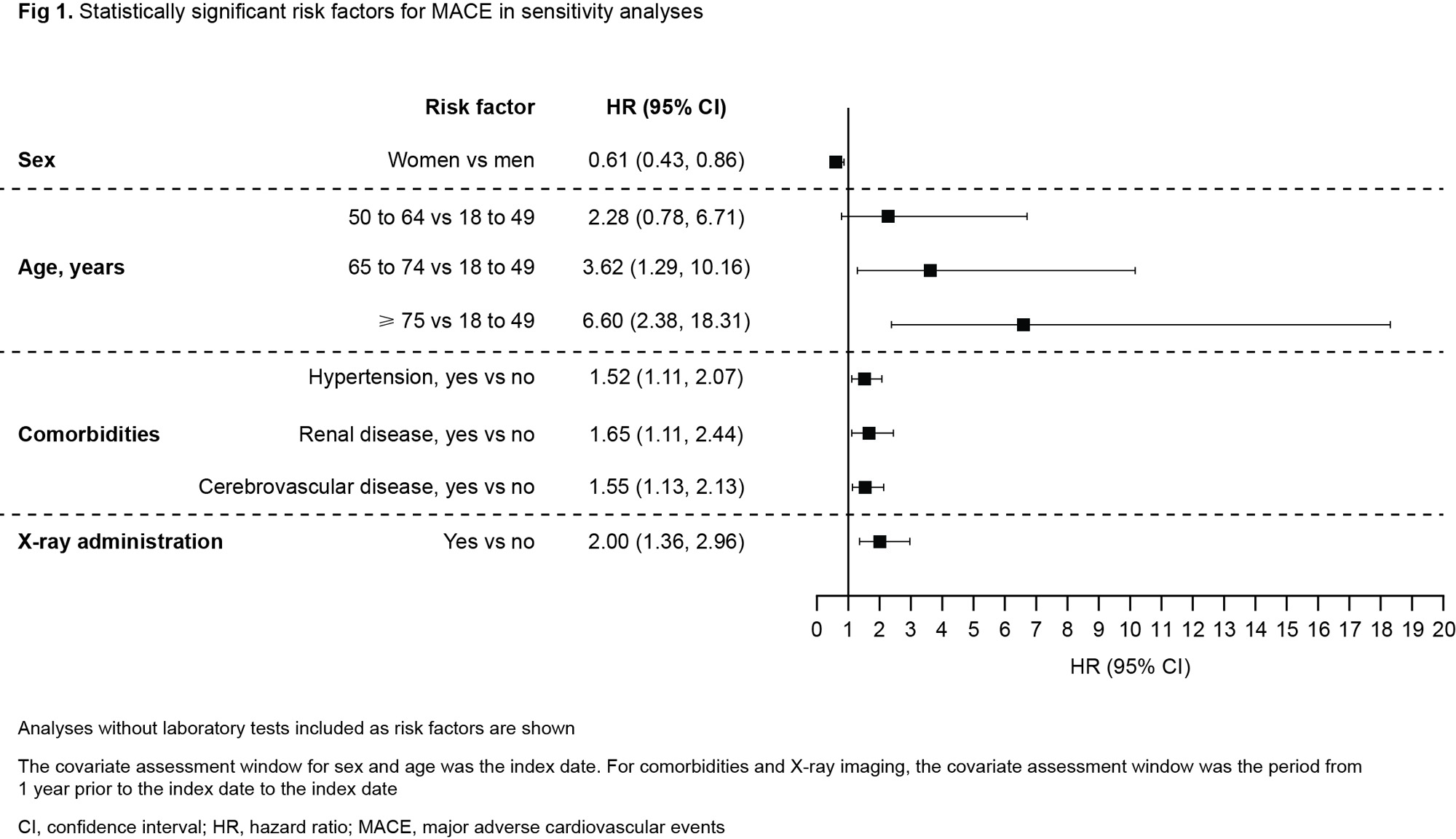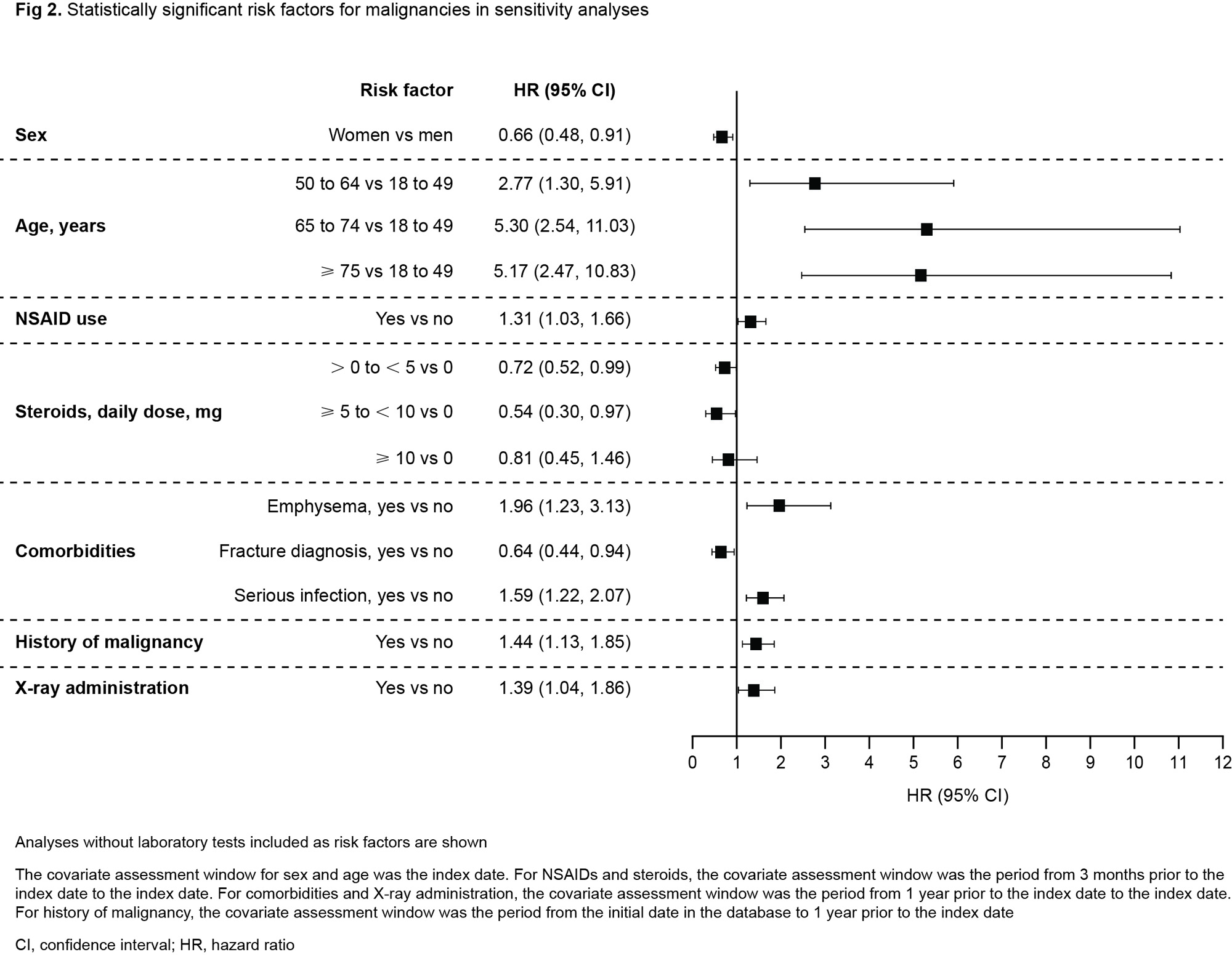Session Information
Date: Monday, November 13, 2023
Title: (1264–1307) RA – Diagnosis, Manifestations, and Outcomes Poster II
Session Type: Poster Session B
Session Time: 9:00AM-11:00AM
Background/Purpose: Patients (pts) with RA are at an increased risk of major adverse cardiovascular events (MACE) and malignancies vs the general population.1,2 However, risk factors for MACE and malignancy in pts with RA may differ by geographic location; to date, limited real‑world data (RWD) assess this. Thus, this study aimed to identify risk factors for MACE and malignancy (including non-melanoma skin cancer) in pts with RA using RWD in Japan.
Methods: This was a cohort study of pts with RA using a RW database (electronic medical records, claims, and discharge abstract data) of medical institutions in Japan (maintained by the Health, Clinic, and Education Information Evaluation Institute; supported by the RWD Co. Ltd). Eligible pts from January 2013–December 2021 had ≥ 1 RA diagnosis, were aged ≥ 18 years, were prescribed ≥ 1 RA drug, had no psoriasis diagnosis, and had a record after the index date. For the MACE cohort, pts had no myocardial infarction or stroke diagnosis ≤ 31 days before index. For the malignancy cohort, pts had no malignancy diagnosis < 1 year before index. Outcomes were the incidence of initial MACE and malignancy during follow‑up (up to July 1, 2022). Known/exploratory risk factors/variables, including demographics, comorbidities, medications, administration of imaging techniques (eg X-rays), and laboratory tests, were selected using Cox regression models.A sequential variable selection technique with univariate analysis, variance inflation factors, and correlation coefficients was used to select exploratory risk factors. Sensitivity analyses were conducted with and without using laboratory tests as risk factors to identify consistent findings. Adjusted hazard ratios with 95% confidence intervals were calculated.
Results: Across MACE (16,012 pts) and malignancy (14,545 pts) cohorts, most pts were female (64.69–66.90%) and aged ≥ 65 years (69.78–68.88%); the most common comorbidities (all ≥ 29.60%) were hypertension, hyperlipidemia, and malignancies (MACE cohort only; Table). In total, there were 214 MACE over 43,964.7 pt-years (PY; incidence rate [IR] 0.49/100 PY) and 315 malignancies over 40,251.6 PY (IR 0.78/100 PY). Significant variables associated with increased MACE risk were male sex, older age, hypertension, renal disease, cerebrovascular disease, and X‑ray administration (Fig 1). Significant variables for increased malignancy risk were male sex, older age, NSAID use, emphysema, serious infection, history of malignancies, and X‑ray administration; steroid use and fracture diagnosis were significant for reduced malignancy risk (Fig 2).
Conclusion: In pts with RA in RW settings in Japan, male sex, older age, and X-ray administration were associated with increased risk for MACE and malignancies. Hypertension and cerebrovascular disease increased MACE risk; emphysema increased malignancy risk. Missing data may have reduced potential associations, eg BMI/smoking. 1. Aviña-Zubieta et al.Ann Rheum Dis 2012; 71: 1524–9 2. Simon et al. Arthritis Res Ther 2015; 17: 212 Study sponsored by Pfizer. Medical writing support provided by L Rodgers, CMC Connect; funded by Pfizer.
To cite this abstract in AMA style:
Hirano T, Sugiyama N, Hoshi M, Jo J, Shin K, Yamaoka K. Risk Factors for Major Adverse Cardiovascular Events and Malignancies in Patients with Rheumatoid Arthritis in a Real-World Setting in Japan [abstract]. Arthritis Rheumatol. 2023; 75 (suppl 9). https://acrabstracts.org/abstract/risk-factors-for-major-adverse-cardiovascular-events-and-malignancies-in-patients-with-rheumatoid-arthritis-in-a-real-world-setting-in-japan/. Accessed .« Back to ACR Convergence 2023
ACR Meeting Abstracts - https://acrabstracts.org/abstract/risk-factors-for-major-adverse-cardiovascular-events-and-malignancies-in-patients-with-rheumatoid-arthritis-in-a-real-world-setting-in-japan/



